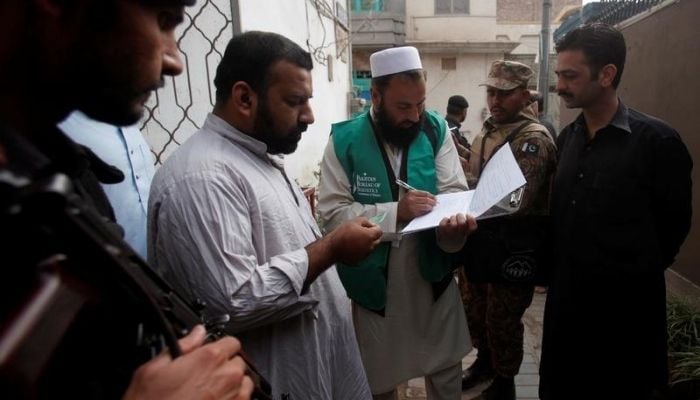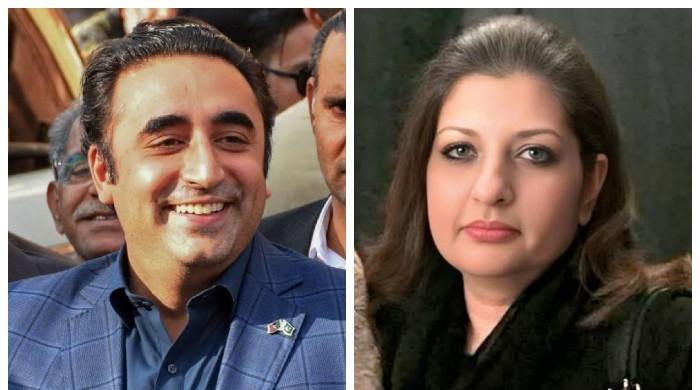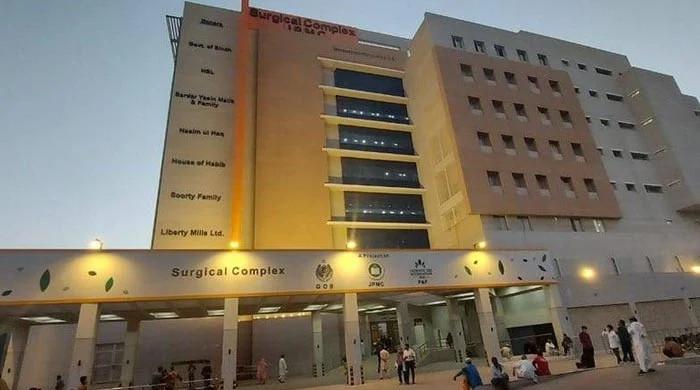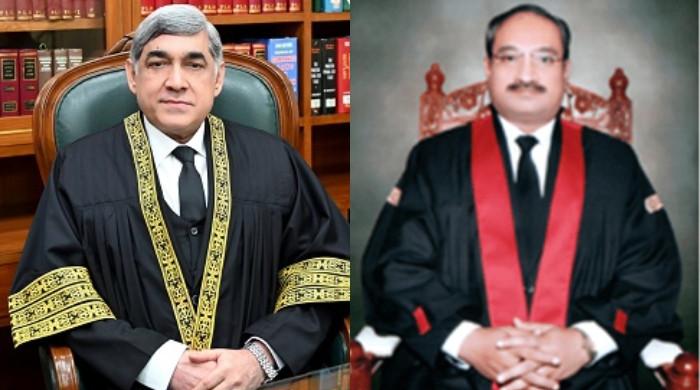Pakistan's first-ever digitised population census to be completed in August 2022
Asad Umar says people will be counted on basis of their existing location in last six months for digitised census
February 23, 2022

- Asad Umar announces Pakistan's first-ever digitised population census to be completed in August 2022.
- Data will be kept safe from hackers, he says.
- Everyone will be counted based on where they have lived in the last six months.
ISLAMABAD: Federal Minister for Planning Asad Umar announced Tuesday that Pakistan's first-ever digitised population census will be completed over a 30-day period in August 2022 on an "as is, where is" basis and without the requirement of having computerised National Identity Cards (CNICs).
He said this during the inauguration of the National Census Coordination Center (N3C).
The Ministry of Information Technology and the National Telecommunications Center would keep data safe from hackers, and it would not be done over the internet.The process will be monitored through geo-fencing and GIS mapping, Asad Umar said while briefing reporters on the occasion of inaugurating N3C at the Pakistan Bureau of Statistics (PBS) on Tuesday.
Everyone will be counted based on where they have lived in the last six months. To a question about the complexities of the census due to interprovincial movements, particularly in Karachi, Umar said people will be counted on the basis of their existing location in the last six months.
If their families were present with them, they would be counted in that city, or otherwise, wherever they were living, he underlined. "No curfew will be imposed in the country on the occasion of holding the next census exercise," said Asad Umar.
After the PTI's five-year term ends in August 2023, the results will be available in December 2022, so there will be enough time for the next general election to be held after that.
Asad Umar said that the PTI-led government would complete its five-year tenure. When asked about a no-trust motion announced by the opposition parties against PM Imran Khan, he replied that the time of the third generation had arrived, starting from Sharif and Zardari to Maryam and Bilawal now. To a question concerning the opposition’s call for a long march and a no-confidence vote in parliament, the minister said the government did not take the opposition seriously because they had "failed in their designs multiple times already".
He was of the view that the next general elections would be held based on the upcoming population census in 2018 after the census exercise was executed in 2017. It will be accomplished under the security of Pakistan Army personnel. The house listing and counting of the population will kick-start from August 1, and every enumerator will have a computer tablet that will cover two blocs in his jurisdiction within a 30 day period till August 30, 2022. The number of census blocs has increased from 168,000 in 2017 to 180,000 for holding the upcoming population census, and each enumerator will have to count 250 households in his bloc.
To end controversies over the census exercise, the Minister for Planning directed the Chief Census Officer to hold frequent interactions with parliamentarians and the media and rectify complaints in case of any genuine concerns. The exercise should be done transparently as the government did not have any intention of "manipulating" the results.
He said the census was a crucial exercise because, on its basis, the financial resources were distributed among the centre and the provinces under the NFC Award. Responding to a question, the minister said that the digital system will be completely secure as it will not be internet-based. On a question about IT security, the minister said that the Ministry of IT and the National Telecommunication Center (NTC) would keep an eye on and protect important data from any possible attack.
Pakistan’s Chief Census Officer, Naeem Uz Zafar, told journalists that the pilot census exercise would be conducted in May 2022, and a full-fledged census would commence in August for a month.
The PBS increased the number of languages from 5 to 10 in the census forms. The framework of the economic census will also be developed with the help of the upcoming population census. The government will hire the services of 115,000 enumerators from the health, education, local government, and family planning departments of the provinces. He said that so far, the utilised amount for hardware and software stood at Rs10 billion. For current expenditures, the government has allocated Rs5 billion. It is hoped that more resources will be allocated for the population census in the next budget for 2022-23, he added.
The Chief Statistician, Dr. Naeem uz Zafar, presented the main features of the 7th Digital Population and Housing Census, along with the achieved and upcoming targets related to the census process. He said the upcoming census will be the first-ever digital census in Pakistan by involving NTC, the Ministry of IT & T, PTA, SUPARCO, and NRTC. There will be more transparency and reliability in the process if tablet-based data collection, geo-tagging, real-time monitoring, extensive training through technology, and faster release of results are used.
An N3C control room will make the process more responsive by quickly pointing out and fixing mistakes. Electronic data collection, geo-tagging of structures, the involvement of people who want to help, and consultation with provinces will all help make the census process more acceptable.
Originally published in The News











